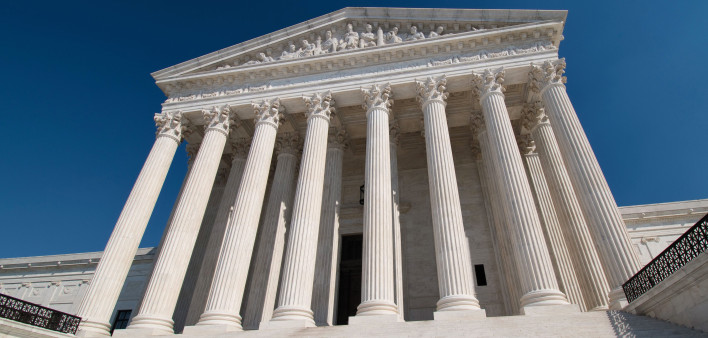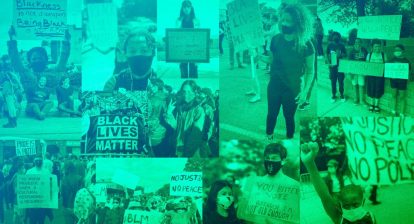By AIDS United
In a blog post titled “How Recent SCOTUS Rulings Will Impact the HIV Community,” AIDS United explains the importance of three Supreme Court decisions, which the group views as two wins and a loss. Below is an excerpt.
Discrimination in Employment
Boystock v. Clayton
In a 6–3 decision, the Supreme Court of the United States (SCOTUS) extended certain protections to LGBT individuals under the Civil Rights Act. Specifically, Justice Neil Gorsuch wrote in the majority opinion that sex-based employment discrimination protections extended to sexual orientation and gender identity.
The majority opinion also noted that Title VII can be applied in sex discrimination not only in groups but also toward specific individuals. This case involved a statutory interpretation of Title VII rather than constitutional law, meaning that the courts interpreted legislation rather than what is contained within the Constitution.
AIDS United has long engaged in advocacy around the rights of LGBT individuals in employment. We look for-ward to seeing how this case influences protections for LGBT people in all areas.
We also owe a tremendous debt of gratitude to the late Aimee Stephens, one of the plaintiffs in these joint cases.
Sex-Work Stigma
U.S. Agency for International Development v. Alliance for Open Society International
The Supreme Court also ruled on a disputed aspect of a 2013 case, determining that foreign-based HIV/AIDS organizations must still officially denounce sex work to receive U.S. funding.
Seven years ago, the Court ruled that requiring HIV groups working outside the United States (but U.S.-registered and -based) to denounce sex work as a requirement of receiving U.S. funding was a violation of the First Amendment right to freedom of speech.
The Alliance for Open Society International (AOSI) won that case, which allowed it to continue its HIV/AIDS work with U.S. funding abroad without an organizational statement “explicitly opposing [sex work] and sex trafficking.”
However, until this decision, it was unclear if foreign-based grantees and other AOSI partners would have the same protections. In a 5–3 decision (with Justice Elena Kagan recusing herself because of her work on the issue in a previous role), the Supreme Court ruled that these foreign-based organizations were not subject to the same free speech protections and that the U.S. government could require denunciation of sex work from them as a contingent for funding intended to end HIV/AIDS abroad.
AIDS United contributed to an amicus curiae brief supporting the plaintiffs. We will continue supporting decriminalization and destigmatization of sex work.
Abortion Care Rights
June Medical Services v. Russo
This decision bolsters protections for abortion care rights—for the moment. In a 5–4 decision, Supreme Court justices chose to strike down a Louisiana law requiring that doctors who perform abortions have admitting privileges in nearby hospitals, allowing the state’s three abortion clinics to remain open.
The case was almost identical to one decided by SCOTUS in 2016, Whole Woman’s Health v. Hellerstedt, in which Texas legislators also sought to institute an admitting privileges law. Because of the precedent set in that case that this type of law was an “undue burden” on people seeking abortion care, reproductive justice advocates were again able to prevail.
While this case is a win for reproductive health, advocates must stay engaged, as it was decided not on the merits of bodily autonomy but on court precedent, as Chief Justice John Roberts articulated in his concurring opinion.
Reproductive justice advocates warn that even though this decision was a win, it should be a wake-up call.
AIDS United will continue to advocate in federal avenues for the civil and human rights of all people as the only path toward ending the HIV epidemic in our nation and world.
Read more >> http://ow.ly/bt9K50CpEQf








